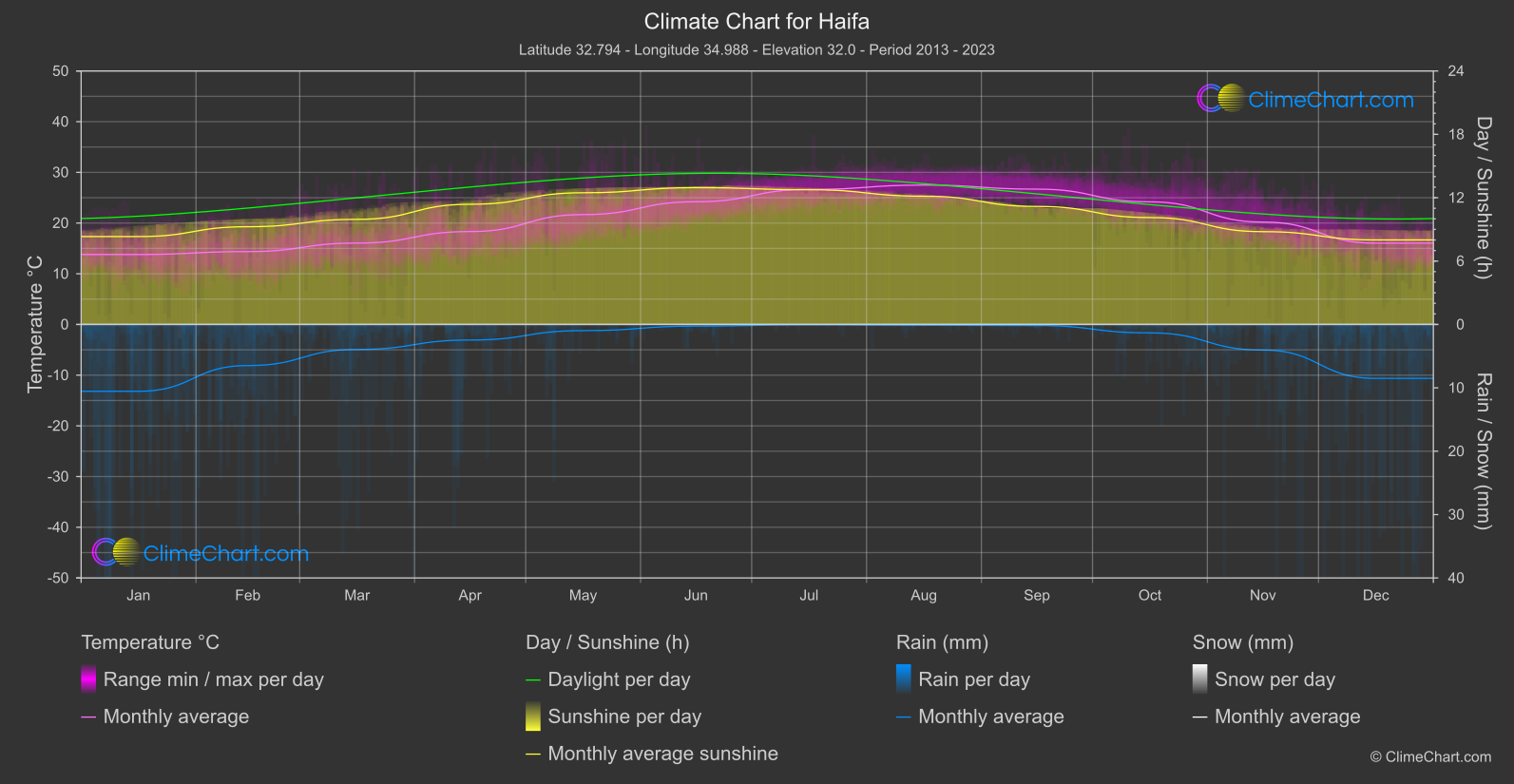Detailed Climate Information for Israel: Regional Weather Patterns and Data
Israel, located in the Middle East, offers a diverse climate with a mix of Mediterranean and desert conditions.
Israel has a diverse climate, ranging from the Mediterranean climate in the coastal regions to arid desert conditions in the south. Summers are hot and dry, while winters are mild and rainy. The mountainous areas experience cooler temperatures and even snow in winter.
Best Travel Time Guide for Israel: Ideal Seasons and Weather Insights
The best time to travel to Israel varies depending on the region. For coastal areas, spring and autumn offer pleasant temperatures and clear skies, making it ideal for sightseeing. Inland areas are best visited in the cooler months to avoid extreme heat. The desert regions are best explored in the winter when temperatures are milder.
Detailed Climate in the Regions of Israel

Haifa
Region North
Haifa, located in Israel, experiences a Mediterranean climate with hot, dry summers and mild, wet winters.

Nazareth
Region North-East
Nazareth, located in northern Israel, experiences a Mediterranean climate with hot, dry summers and mild, wet winters.

Eilat
Region South
Eilat enjoys a hot desert climate with year-round sunshine.

Jerusalem
Region East
Jerusalem, the capital of Israel, experiences a Mediterranean climate with hot, dry summers and mild, wet winters.

Tel Aviv
Region North
Tel Aviv, Israel, enjoys a Mediterranean climate with hot, rainless summers and mild, rainy winters.